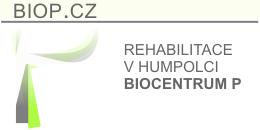

O Biocentru P
To Buy Apixaban Online Visit Our Pharmacy ↓
 Apixaban for Dvt Prevention: a Deep Dive
Apixaban for Dvt Prevention: a Deep Dive
Apixaban represents a pivotal advancement in the prevention of deep vein thrombosis (DVT), marking a significant step forward from traditional anticoagulant therapies. Developed as part of a new class of anticoagulants known as direct oral anticoagulants (DOACs), it offers a novel approach by directly inhibiting Factor Xa, an essential component of the coagulation cascade responsible for thrombin generation and clot formation. This mechanism of action sets it apart, promising a more targeted therapy with the potential for fewer side effects compared to older anticoagulants. As healthcare professionals continue to adopt this innovative treatment, apixaban is quickly becoming a cornerstone in the management of DVT prevention, rivalling long-standing options.
Its introduction into clinical practice has been met with enthusiasm due to its ease of use, requiring no routine monitoring—an often cumbersome requirement of its predecessor, warfarin. Additionally, apixaban's fixed dosing regimen simplifies treatment protocols, enhancing patient compliance and overall treatment efficacy. This ease of administration, combined with its effective prevention of DVT, positions apixaban as a preferable option for both clinicians and patients. As research and clinical experience with this drug expand, it holds the promise of redefining the standards of care in DVT prevention, introducing a new era where patient safety and efficiency of treatment are significantly improved.
How Apixaban Works: the Science Behind the Medicine
Apixaban operates by inhibiting Factor Xa, a critical enzyme in the coagulation cascade that plays a pivotal role in blood clot formation. Through its targeted action, apixaban effectively reduces the risk of clot formation while maintaining a balance to prevent excessive bleeding. This selective inhibition approach allows for a more predictable and stable anticoagulant response compared to traditional treatments, making it a preferred choice for both patients and healthcare providers in the prevention of Deep Vein Thrombosis (DVT).
Unlike its predecessors, apixaban does not require frequent monitoring of blood coagulation parameters, such as the International Normalized Ratio (INR), which is commonly associated with warfarin therapy. This significant advancement simplifies the management of anticoagulation therapy and improves the quality of life for patients. The precision of apixaban’s action underscores a leap forward in the science of medicine, providing a robust and safer alternative for DVT prevention that aligns with the demands of modern healthcare practices.
Comparing Warfarin and Apixaban: a Battle of Blood Thinners
In the realm of anticoagulation therapy, Warfarin has long been a cornerstone in the prevention of deep vein thrombosis (DVT), requiring meticulous monitoring of the International Normalized Ratio (INR) to ensure therapeutic efficacy and minimize risk. However, the advent of Apixaban, a direct oral anticoagulant (DOAC), marks a significant shift in the approach to DVT prevention. Unlike Warfarin, which works by inhibiting vitamin K-dependent clotting factors, Apixaban directly inhibits Factor Xa, an essential component in the clotting cascade. This mechanism allows for a more predictable anticoagulant response, eliminating the need for regular INR monitoring and dietary restrictions associated with vitamin K intake.
The comparative analysis between Warfarin and Apixaban underscores a pivotal evolution in patient care and quality of life. Studies have demonstrated that Apixaban not only offers a comparable efficacy to Warfarin in preventing DVT but also significantly reduces the risk of major bleeding, a major concern with anticoagulant therapy. Additionally, the absence of frequent blood tests and dietary restrictions with Apixaban significantly enhances patient compliance and satisfaction. Despite these advantages, the choice between Apixaban and Warfarin ultimately hinges on individual patient factors, including clinical history, lifestyle, and the potential for drug interactions, underscoring the importance of personalized medical care in the prevention of DVT.
The Safety Profile of Apixaban: Risks and Benefits Uncovered
Apixaban, a novel anticoagulant, offers a promising alternative to traditional thrombopreventive agents, with a notably different safety profile. Its mechanism targets specific factors in the coagulation process, potentially resulting in fewer bleeding complications compared to older anticoagulants like warfarin. Major benefits include the elimination of the need for routine blood monitoring and a lower risk of intracranial hemorrhage. However, as with any medication, there are risks. Unlike warfarin, there's currently no widely available antidote for severe bleeding events induced by apixaban, although efforts in developing one are ongoing.
Adverse reactions can vary among individuals, with some experiencing minor side effects such as nausea or abdominal pain. Despite these challenges, the overall risk-reduction benefits for Deep Vein Thrombosis (DVT) prevention have positioned apixaban as a preferred option for many healthcare providers. Its usage underscores the importance of patient-specific considerations, including kidney function and potential drug interactions, in the management of anticoagulation therapy. As clinical experience with apixaban grows, it solidifies its role in the prevention of DVT, reaffirming its value in clinical practice amidst a competitive landscape of anticoagulants.
Real-life Success Stories: Apixaban Users Share Their Experiences
Across the globe, individuals on their journey with DVT prevention have turned to Apixaban, each sharing their unique success stories, illuminating its impact beyond clinical trials. One story, in particular, unfolds with Jane, a 58-year-old marathon runner, who, after a scary diagnosis of Deep Vein Thrombosis (DVT), found solace and safety in Apixaban. She credits it for her rapid recovery and its ease of use, highlighting the absence of frequent blood monitoring as a game-changer. Jane's experience mirrors that of many who once feared the lifestyle limitations of DVT, now embracing life fully thanks to Apixaban.
Moreover, stories like that of Alex, who switched to Apixaban from a traditional anticoagulant, further affirm its significance. Alex discusses the tangible benefits he experienced, particularly the reduced risk of bleeding and the peace of mind from not having to manage dietary restrictions commonly associated with other blood thinners. These personal accounts not only showcase Apixaban's effectiveness and user-friendly nature but also paint a picture of a future where managing DVT is less burdensome, empowering individuals to lead active, unrestricted lives.
Future Perspectives: What's Next for Apixaban in Dvt Prevention
As the landscape of anticoagulation therapy continues to evolve, Apixaban stands at the forefront of innovation in the prevention of deep vein thrombosis (DVT). Research is fervently underway to expand its applications and improve patient outcomes. Scientists are not only examining higher-risk populations who could benefit from Apixaban but are also exploring its potential in conjunction with emerging medical technologies and therapies. The development of more personalized medicine approaches, through genetic testing and real-time monitoring, holds promise for tailoring Apixaban dosages to individual patient needs, enhancing both efficacy and safety.
The future of Apixaban also includes potential shifts in healthcare policies and guidelines, reflecting its growing role in DVT prevention. Ongoing and future clinical trials aim to solidify its position by identifying broader patient demographics and conditions that could benefit from its use. Additionally, the integration of digital health tools, such as wearable devices that monitor blood coagulation levels, could revolutionize how Apixaban's effectiveness is tracked and managed outside of traditional clinical settings. These advancements signify a dynamic era of anticoagulation therapy where Apixaban could play a pivotal role in preventing DVT with increased precision and patient convenience.
https://orthosummit.com/wp-content/uploads/2022/08/png/fildena.html http://sinusys.com/images/icons/png/prelone.html https://galenapharm.com/pharmacy/avanafil.html





